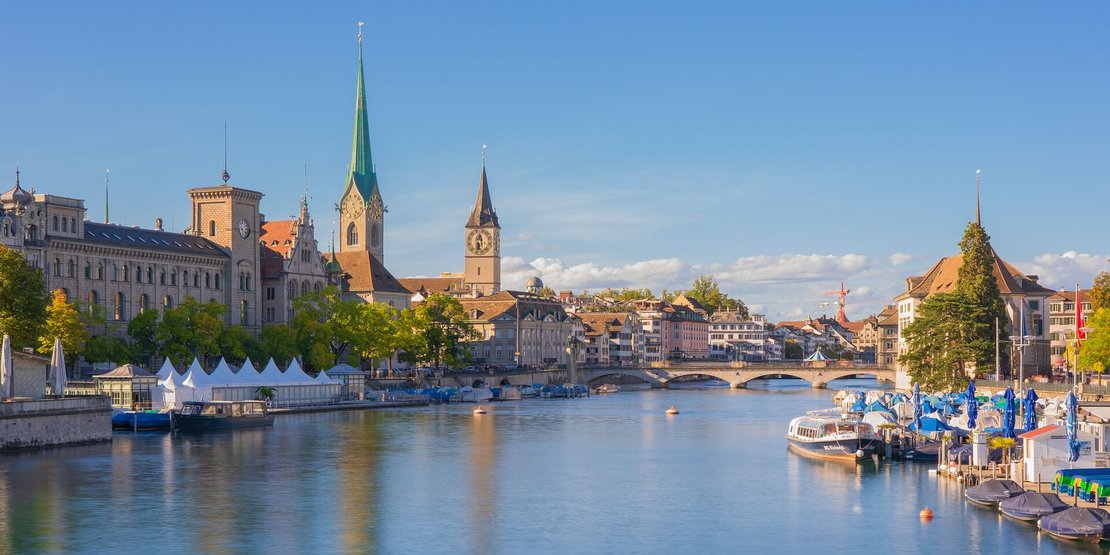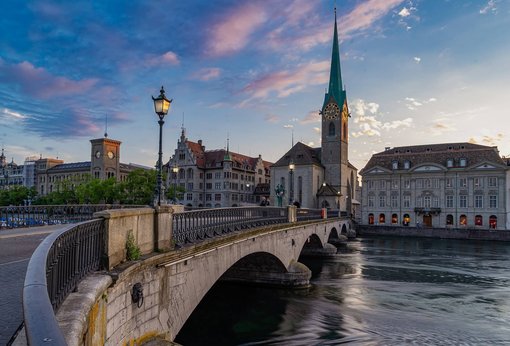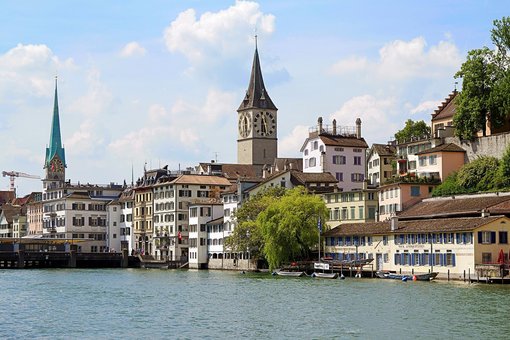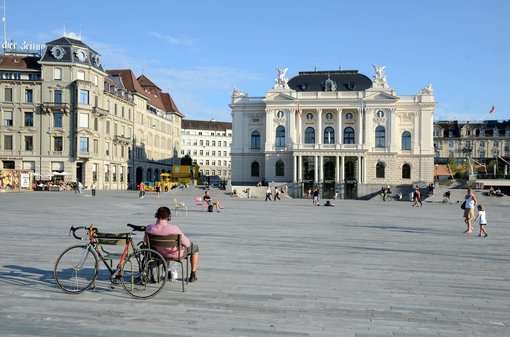What Languages Are Spoken in Switzerland?

The Swiss are known for their excellent quality of life, infrastructure, and environmentally friendly outlook. It is also one of the best places in the world to study abroad. As a result of the country's four official languages, the key to the Swiss' success and harmony is its diversity.
The social tensions that are common in multilingual communities are avoided in Switzerland. One of the biggest assets of the Swiss people is their multilingualism. Although speakers of these four languages are spread throughout the country, the four languages are largely confined to specific regions.
Here are the languages spoken in Switzerland:
Swiss German
Swiss German is the most widely spoken language in Switzerland. It is spoken by about 60 percent of the population and is most commonly spoken in the northern, central and eastern parts of the country. Schwyzerdütsch, as it is known to locals, is a collection of Alemannic dialects that are no longer spoken in Germany or Austria.
Standard German is taught to Swiss children in school from an early age, so they are able to communicate with Germans, Austrians, and other German speakers without difficulty — effortlessly switching to standard German almost automatically when conversing with a non-Swiss German speaker. As Swiss German dialects do not all have a universal written form, all laws, books, newspapers and other forms of written communication are written in Standard German. This explains why most Swiss Germans refer to Standard German as Schriftdeutsch — “written German”.
Despite the fact that Swiss Germans vigorously promote a variety of dialects within their community, it's impossible to even say that there is one unified spoken version of Swiss German. If you're in Zurich, you'll hear a totally different dialect from Basel, let alone in a market square in an Alpine village. In general, the more formal the occasion, the more likely it is that the communication will take place in Standard German, mainly if non-Swiss German speakers are nearby. On the other hand, dialects dominate in the private sphere and between Swiss-Germans themselves.
Swiss French
French dominates Swiss French Switzerland's western part. French speakers make up approximately 20 percent of the Swiss population. If you plan to travel to Swiss cities like Geneva or Lausanne, bring your French dictionary with you since these are all French-speaking tourist destinations.
There are fewer differences between Swiss French and the French spoken in France than between Swiss German and Standard German. While there are some differences in vocabulary and expressions, anyone who speaks Standard French should be able to learn Swiss French easily.
Swiss Italian
Swiss Italians live in the south of Switzerland, close to the border with Italy. With 673,000 speakers, this group makes up just under eight percent of the country's population, making it the third largest national language group in the country.
Any Italian or Italian-language student can fairly easily understand Swiss Italian, much like Swiss French. Swiss Italian differs from Standard Italian by a few major loanwords from German and French. Still, despite the presence of local dialects like Ticinese and other Lombard-influenced dialects, it is very similar to Standard Italian in Switzerland.
As opposed to Standard Italian, Swiss Italian is distinguished by its so-called “calques”, which are phrases that sound just like literal translations from French and German. The Swiss Italian word for "driver's license" is Patente in Italian, but Swiss Italians use Licenza di condurre, a direct translation of the French permis de conduire.
Romansh
With only 37,000 speakers, Romansh is the smallest language group. Romansh is a recognized national language in Switzerland since 1938 and only gained official recognition in 1996. Romansh is a recognized official language in the south-eastern canton of Grisons, where it is employed as a medium of governance and education and also thrives as a community language.
Despite the major incursion of Italian and German into traditional Romansh-speaking areas, this language has survived into the 21st century in part due to its speakers' tendency to come from the more isolated, mountainous regions of southeast Switzerland.
German has greatly influenced the vocabulary and grammar of Romansh, a Romance language. Surprisingly, there are five Romansh dialects in everyday use despite the relatively small size of the Romansh-speaking community, and attempts by the government of Grisons to enforce a unifying "pan-Romansh" have had mixed results at the local level.
The different Romanian dialects spoken in Switzerland are:
- Vallader
- Puter
- Surmerian
- Sutselvan
- Surselvan
Other Languages
Speaking the language of the country is an important factor of nationalization in Switzerland. Yet, many immigrants in Switzerland continue to speak their native tongue. According to the Swiss Federal Statistical Office, other languages used in Switzerland are English, Portuguese, Albanian, etc.
Here is the percentage of people whose primary language is another one:
- English - 5.8%
- Portuguese - 3.5%
- Albanian - 3.2%
- Serbo Croatian - 2.3%
- Spanish - 2.4%
- Other - 8.2%
International Students in Switzerland
International students can benefit from Switzerland's multilingualism. Many Swiss businesses are looking for individuals who are fluent in many languages. International students will be able to communicate effortlessly in most cases, especially in the cities.
English is included in general education and is taught in Swiss schools from an early age. The variety of its languages contributes to Switzerland's reputation as a highly welcoming destination.
In several regions of Switzerland, English is not a common language. Understandably, multilingualism has its limits in rural areas. Instead, you'll meet folks deeply ingrained in their native culture in a very authentic Switzerland.
Swiss Greetings
Here are a few basic greetings in the four languages spoken in Switzerland:
| Greeting | Swiss German | Swiss French | Swiss Italian | Romansh |
|---|---|---|---|---|
| Hello | Hallo | Bonjour | Ciao | Cia, Tgau, Allegra |
| Goodbye | Auf Wiedersehen | Au revoir | Addio | Ade |
| Please | Bitte | S’il vous plaît | Per favore | Per plaschair |
| Thank you | Danke | Merci | Grazie | Grazia |


